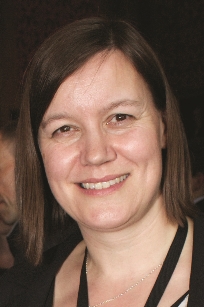News / PAC calls for clear financial recovery plan

The report, Financial sustainability of the NHS, said sustainability and transformation plans should be a vehicle for modernising the NHS. However, NHS England and NHS Improvement had a lot to do to give the public confidence the plans can be achieved and were not ‘just a cover for cuts in services’.
The MPs’ committee was concerned that measures implemented to restore financial balance were impacting on the quality of patient care and patient experience. The trusts with the lowest Care Quality Commission ratings also reported poorer average financial positions. The committee added that transfer of capital funding to revenue was ‘potentially damaging’.
It called on the government to report back, by July, on its understanding of the link between financial performance and the impact on patient care. It should also analyse how financial pressures in social care are impacting on the NHS.
PAC chair Meg Hillier (pictured) said the NHS was under threat from growing and unsustainable financial pressures. ‘Few trusts feel they have a credible plan for meeting the financial targets they have been set by government. At the same time, the government seems unable to get its own house in order—plundering NHS investment funds to plug holes elsewhere, and falling out in public over its longer-term strategy.’
The committee called for an end to the public bickering between NHS England chief executive Simon Stevens, the Department and Downing Street. In recent months they have clashed over the level of funding being given to the service.
‘Contradictory statements about funding from the prime minister and head of NHS England are an insult to taxpayers who deserve an honest, grown-up conversation about future finance and service provision,’ Ms Hillier said.
‘Government's rigid adherence to a set of stock lines about funding, in the face of mounting evidence its plan isn't up to the job, is not it.’
The PAC expected the government to take clear and targeted action on finances, focusing on NHS bodies and health economies in severe financial difficulty.
But she added: ‘Let us be clear: this sticking-plaster approach is not sustainable, will not enable the NHS to get ahead of the problems it faces, and represents neither good value to taxpayers nor the best interests of patients.’
King’s Fund chief executive Chris Ham agreed that STPs had a long way to go to convince the public of the case for change. And he added that financial turnaround measures were affecting services. ‘The committee is right that the financial pressures facing the NHS are affecting patients’ access to care and, with finances set to get even tighter over the next couple of years, we expect this to get worse. The government must either find additional resources for health and social care or be honest with the public about the level of service it can expect with the funding currently provided.’
Related content
We are excited to bring you a fun packed Eastern Branch Conference in 2025 over three days.
This event is for those that will benefit from an overview of costing in the NHS or those new to costing and will cover why we cost and the processes.